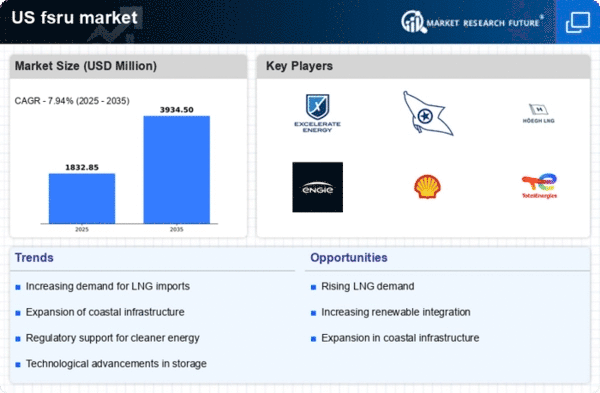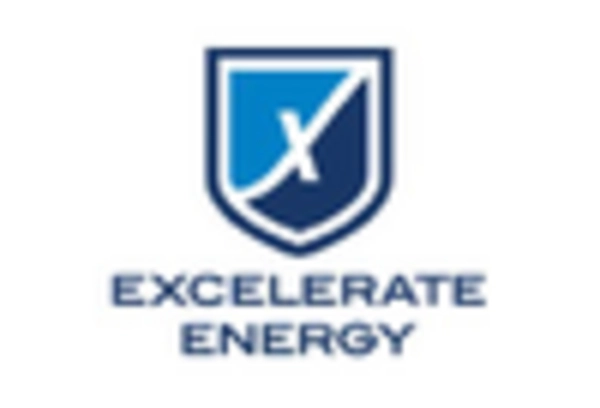Rising Natural Gas Demand
The fsru market in the US is experiencing a notable increase in demand for natural gas, driven by the transition towards cleaner energy sources. As industries and power generation sectors seek to reduce carbon emissions, natural gas is emerging as a preferred alternative to coal. In 2025, natural gas accounted for approximately 40% of the US electricity generation mix, highlighting its growing significance. This shift is likely to bolster the fsru market, as floating storage and regasification units provide a flexible and efficient means of importing and utilizing natural gas. Furthermore, the US is expected to increase its liquefied natural gas (LNG) exports, further stimulating the fsru market as infrastructure investments are made to accommodate this growth.
Environmental Regulations and Policies
The fsru market is significantly influenced by environmental regulations and policies aimed at reducing greenhouse gas emissions. The US government has implemented various measures to promote cleaner energy sources, which indirectly supports the growth of the fsru market. For instance, the introduction of stricter emissions standards for power plants has led to a shift towards natural gas, which emits fewer pollutants compared to coal. As a result, the fsru market is likely to benefit from increased investments in LNG infrastructure, with an estimated $10 billion allocated for projects aimed at enhancing the environmental performance of energy systems. This regulatory landscape is expected to create a favorable environment for the fsru market.
Infrastructure Development Initiatives
Infrastructure development initiatives are playing a crucial role in shaping the fsru market in the US. The government has recognized the need for enhanced energy infrastructure to support the growing demand for LNG. Investments in port facilities and regasification terminals are expected to increase, with projections indicating a potential growth of 15% in infrastructure spending over the next five years. This development is likely to facilitate the deployment of fsru units, enabling quicker and more efficient access to natural gas supplies. Additionally, the integration of fsru technology into existing infrastructure can lead to cost savings and improved operational efficiency, further driving the fsru market.
Strategic Partnerships and Collaborations
Strategic partnerships and collaborations among key stakeholders are becoming increasingly important in the fsru market. Companies are recognizing the need to pool resources and expertise to navigate the complexities of the energy landscape. Collaborations between energy producers, technology providers, and regulatory bodies are expected to enhance the development and deployment of fsru units. In 2025, it is projected that joint ventures in the fsru market could increase by 25%, facilitating knowledge sharing and innovation. These partnerships may also lead to more efficient project execution and risk mitigation, ultimately contributing to the growth and sustainability of the fsru market.
Technological Innovations in Regasification
Technological innovations in regasification processes are emerging as a key driver for the fsru market. Advances in regasification technology are enhancing the efficiency and reliability of floating storage and regasification units. Innovations such as improved heat exchangers and automated systems are reducing operational costs and increasing the overall performance of fsru units. In 2025, it is anticipated that these technological advancements could lead to a 20% reduction in regasification costs, making fsru solutions more attractive to energy companies. As the industry continues to evolve, these innovations are likely to play a pivotal role in expanding the fsru market and meeting the growing energy demands in the US.
















